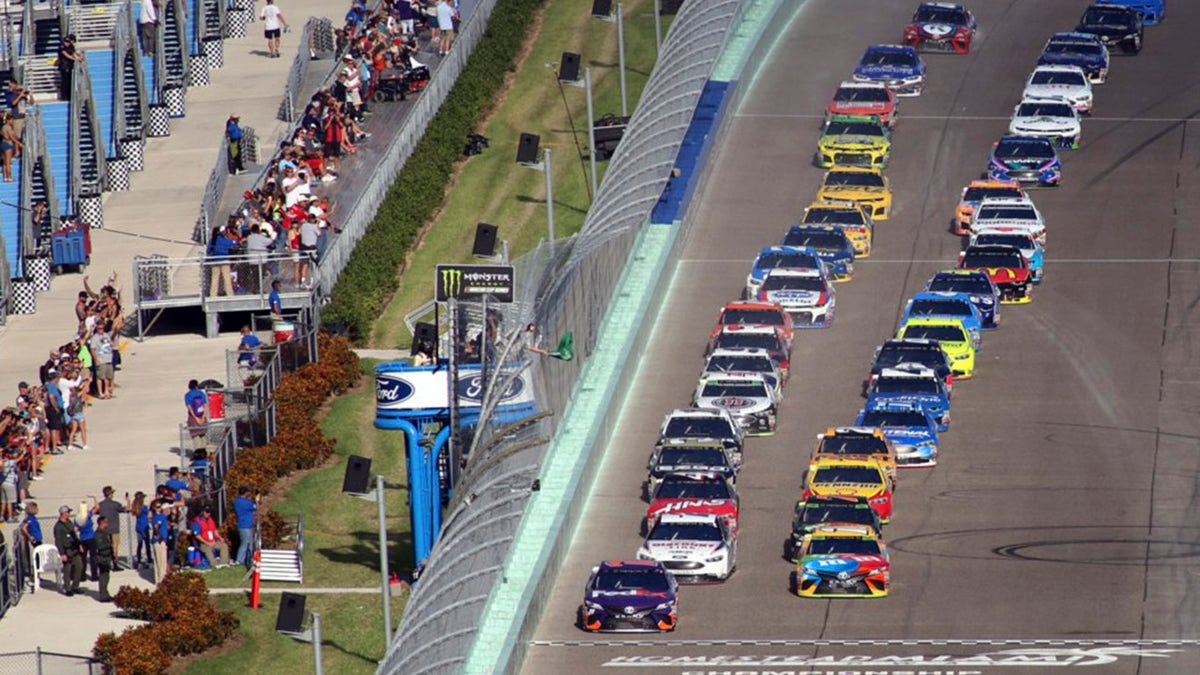
(AP)
NASCAR is open to wholesale changes for 2020 that could include everything from doubleheaders, midweek races, a tightened schedule, shorter races, and even a potential shared event schedule with IndyCar.
Steve Phelps, named president of the sanctioning body last month, insisted NASCAR can weather its current decline and work out of its downturn. But it's going to take changes that are being discussed among the sport's stakeholders.
The first significant change comes next season with a rules package that NASCAR is adamant will dramatically improve the on-track product. The next big fix would be to the 2020 schedule.
"We've heard from our fan base that they would like to see more short-track racing, they want to see more road courses, they want to see less cookie-cutter tracks," Phelps said Sunday. "We are looking with our broadcast partners and with our tracks and with our teams and drivers to get input on what each of them thinks would be an ideal schedule, and then we're obviously doing fan research.
"Do I believe that everything is on the table? I do."
Phelps held his first news conference as NASCAR president just hours before the championship-deciding season finale at Homestead-Miami Speedway. Brian France had typically represented NASCAR at the annual event, but France took leave as chairman and CEO following his August arrest on drunk driving charges.
Jim France stepped in as interim chairman and CEO following his nephew's arrest, but the word "interim" was dropped from his title shortly after the change. NASCAR also replaced Brent Dewar as president with Phelps, and the leadership group for the family owned business is clearly in transition.
"I can't speak to if Brian is coming back or not," Phelps said. "I do know that Jim France is our chairman and CEO. I do know that Jim France is incredibly involved in this sport, at the racetrack, off the racetrack. I can assure you that Jim France is talking to a lot of people. He's talking to Roger Penske and he's talking to Jack Roush and he's talking to racetrack owners. He's talking to drivers. He's talking to sponsors.
"That's what Jim does, and he is driving this sport. As we look to 2019, we are going to execute against Jim's vision."
At least four times Phelps stressed that Jim France is now running NASCAR even though the second son of the founder is primarily behind the scenes. Bill France Jr., the eldest son of NASCAR founder Bill France, was chairman for 31 years and ruled the sport as a benevolent but firm dictator.
Brian France replaced his father in 2003 and had been soundly criticized throughout the industry as absent and aloof. Jim France's primary focus had been on other France properties — International Speedway Corp. and IMSA's sports car series, for example — until he replaced his nephew in August. Phelps said Jim France has been at every race since taking on his new role.
But Phelps was not able to answer if the France family is looking to sell some or all of NASCAR, or discuss NASCAR's recent bid to purchase all of sister company ISC's public stock.
"If you look at the message that has been sent ... it's that we're going to double down on this sport because we believe in it. We believe this sport is going to grow. We believe this sport, its best days are ahead," Phelps said.
Collaboration with NASCAR's many stakeholders is at its most promising level because all industry participants need the health of the sport to improve. Many big sponsors have left NASCAR, last year's championship team is closing because its sponsor left, and Truck Series champion Brett Moffitt doesn't have a job lined up for next season. Television ratings hit lows in 26 events this season, and the mood has generally been less than upbeat for most of the season.
Phelps, though, remains optimistic.
"We have faced some headwinds. We're hitting those head on," Phelps said. "We always have work to be done. I've been accused of being Pollyannaish before, but I believe the state of sponsorship in this sport continues to accelerate in a positive manner.
"Do we have a lot of work in collaboration with our race teams and our racetracks? We do. And that's what we're doing. We are going to be laser focused on driving consumption."



















